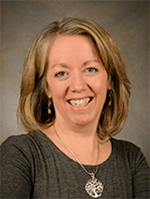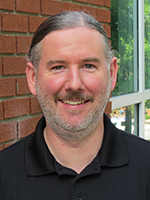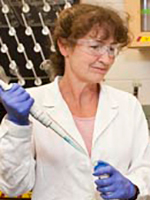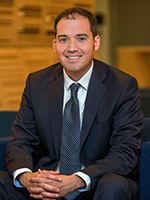FACULTY/STAFF

Dr. Catherine Mobley
Clemson University
Dr. Mobley conducts formative and summative evaluation of the project. The evaluation focuses on implementation and progress toward project goals and milestones, with a particular emphasis on outcomes related to workforce development, career development, and broadening diversity. The mixed-method evaluation approach includes interviews and surveys of project personnel, surveys and focus groups with undergraduate students, site visits, network analysis of collaboration efforts and mapping information utilization.
Clemson University
Dr. Mobley conducts formative and summative evaluation of the project. The evaluation focuses on implementation and progress toward project goals and milestones, with a particular emphasis on outcomes related to workforce development, career development, and broadening diversity. The mixed-method evaluation approach includes interviews and surveys of project personnel, surveys and focus groups with undergraduate students, site visits, network analysis of collaboration efforts and mapping information utilization.

Tom Caldwell
Clemson University
Tom is a research scientist in the Harcum Lab, since 2006 and at Clemson since 2004. He has conducted research across a wide range of fields, such as proteomics, fluorescence microscopy, fermentation science, bioanalytical chemistry, and biofuels. Tom is responsible for media analysis and operation of the ambr®250.
Clemson University
Tom is a research scientist in the Harcum Lab, since 2006 and at Clemson since 2004. He has conducted research across a wide range of fields, such as proteomics, fluorescence microscopy, fermentation science, bioanalytical chemistry, and biofuels. Tom is responsible for media analysis and operation of the ambr®250.

Dr. Brian Dean
Clemson University
Faculty Website
Dr. Dean has research interests that encompass algorithmic computer science and its applications, with emphasis on algorithmic applications in biomedical data science. He is also involved in computer science education, particularly at the high-school level.
Clemson University
Faculty Website
Dr. Dean has research interests that encompass algorithmic computer science and its applications, with emphasis on algorithmic applications in biomedical data science. He is also involved in computer science education, particularly at the high-school level.

Dr. Melissa Harrington
Professor of Biology
Director of the Delaware Center for Neuroscience Research
Delaware State University
Dr. Harrington studies the neurobiology and behavior of a predatory land snail, Euglandina rosea, the rosy wolfsnail. The rosy wolfsnail is a carnivorous snail native to the southeast. By using a combination of physiological and imaging techniques, Dr. Harrington investigates the neural systems involved in slime trail detection and discrimination, and characterizes the neural signals representing slime trail stimuli.
Professor of Biology
Director of the Delaware Center for Neuroscience Research
Delaware State University
Dr. Harrington studies the neurobiology and behavior of a predatory land snail, Euglandina rosea, the rosy wolfsnail. The rosy wolfsnail is a carnivorous snail native to the southeast. By using a combination of physiological and imaging techniques, Dr. Harrington investigates the neural systems involved in slime trail detection and discrimination, and characterizes the neural signals representing slime trail stimuli.

Dr. Jonathan Quincy Brown
Associate Professor of Biomedical Engineering
Tulane University
Lab Website
Dr. Brown’s research focuses on the application and translation of quantitative spectroscopy and imaging tools to improve cancer management in the clinical setting. This is performed through the development of translatable optical methods to directly address gaps in clinical care and improve patient outcomes in surgical tumor removal. Dr. Brown’s lab also develops enabling tools and strategies using optics to answer interesting biological questions in cell and animal models.
Associate Professor of Biomedical Engineering
Tulane University
Lab Website
Dr. Brown’s research focuses on the application and translation of quantitative spectroscopy and imaging tools to improve cancer management in the clinical setting. This is performed through the development of translatable optical methods to directly address gaps in clinical care and improve patient outcomes in surgical tumor removal. Dr. Brown’s lab also develops enabling tools and strategies using optics to answer interesting biological questions in cell and animal models.

Dr. Anne Robinson
Department Chair, Chemical Engineering, Carnegie Mellon University
Email: asrobins@andrew.cmu.edu
Phone: 412-268-2230
Faculty Web page
Dr. Robinson was previously working at Tulane University but transferred to Carnegie Mellon and is now acting as a consultant on the project.
Department Chair, Chemical Engineering, Carnegie Mellon University
Email: asrobins@andrew.cmu.edu
Phone: 412-268-2230
Faculty Web page
Dr. Robinson was previously working at Tulane University but transferred to Carnegie Mellon and is now acting as a consultant on the project.
